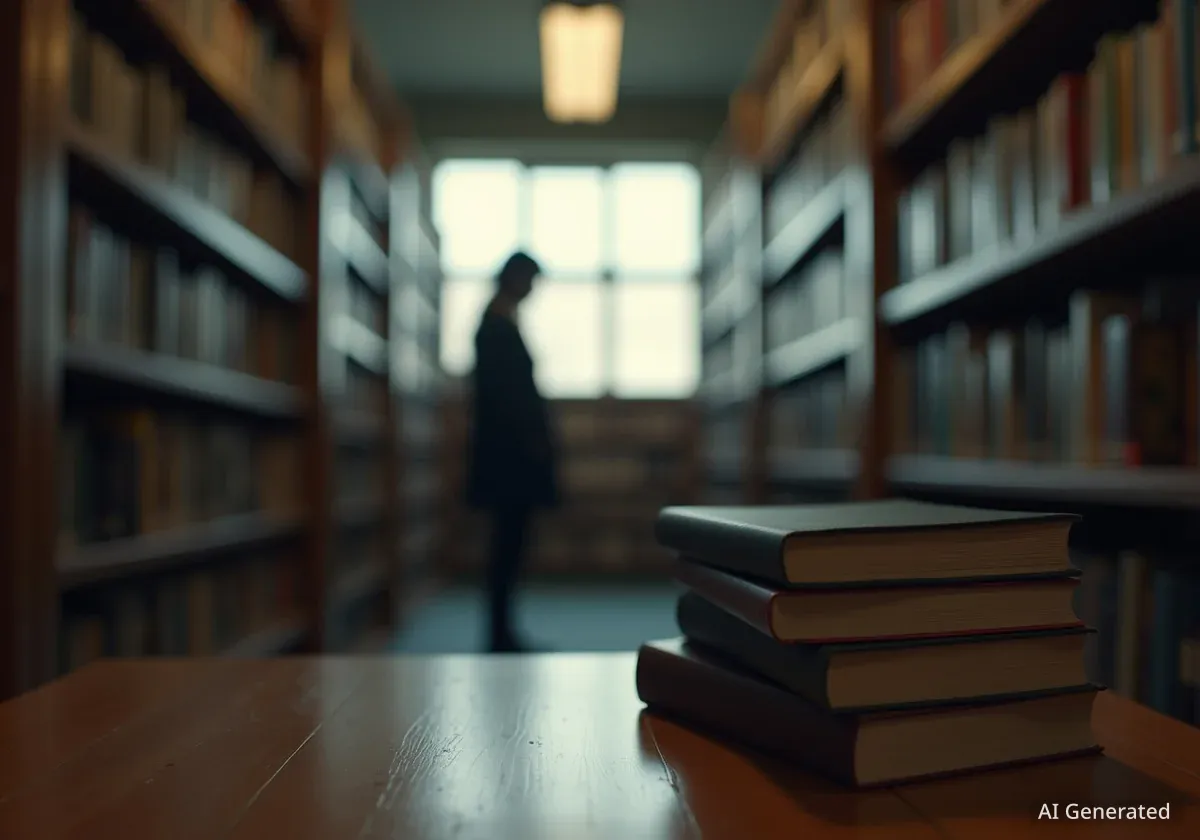A group of librarians, students, and parents has filed a federal lawsuit against South Carolina's top education official, seeking to overturn a state rule that has led to the removal of more than 20 books from public school libraries. The lawsuit, supported by the American Civil Liberties Union of South Carolina, claims the regulation is unconstitutional and creates a system of statewide censorship.
Key Takeaways
- A federal lawsuit challenges South Carolina's Regulation 43-170, which governs the appropriateness of school library materials.
- Plaintiffs include the South Carolina Association of School Librarians, three high school students, and their parents.
- The lawsuit names State Superintendent of Education Ellen Weaver and the Greenville County School District as defendants.
- The regulation has resulted in 21 statewide book bans over the past year.
- Plaintiffs argue the rule is vague, overly broad, and violates constitutional rights.
Federal Lawsuit Targets Book Removal Policy
A legal challenge was initiated this week against a South Carolina education policy that has streamlined the process for banning books across all public schools in the state. The lawsuit, filed in federal court on Tuesday, specifically targets Regulation 43-170, a rule implemented last year by the State Board of Education.
The plaintiffs are represented by the ACLU of South Carolina and include the South Carolina Association of School Librarians (SCASL), along with high school students from Greenville and Charleston counties and their parents. They contend that the regulation is a form of censorship that harms students' access to information and education.
Understanding Regulation 43-170
Regulation 43-170 establishes a uniform process for reviewing and removing instructional materials and books from school libraries. It mandates that all materials must be "age and developmentally appropriate." A key provision allows a decision made at the state level to apply to every school district, effectively creating a statewide ban if a book is deemed inappropriate.
Arguments from the Plaintiffs
The core of the lawsuit is the argument that Regulation 43-170 is unconstitutional. The plaintiffs describe the rule as confusing and overly broad, giving officials too much power to remove books based on subjective interpretations.
Jace Woodrum, Executive Director of the ACLU of South Carolina, described the policy as a form of government overreach.
“It is a dramatic overreach,” Woodrum stated. “We need people to stand up and say, ‘This is too extreme. This is not what our schools are for. We need to get politics out of our schools and focus on literacy and educating our students.’”
The lawsuit alleges that the regulation is part of a "statewide censorship regime" led by State Superintendent of Education Ellen Weaver, who is named as a defendant in the case.
Impact on Librarians and Students
School librarians argue the rule creates a chilling effect on their ability to curate diverse and comprehensive collections for students. According to Tenley Middleton, president of the SCASL, the regulation's criteria for removal are flawed.
“With this regulation, we are not looking at author’s intent. We are not looking at the work as a whole, and we are not looking at the literary merit of these books,” Middleton explained. She is a librarian in the Fort Mill School District.
Defining 'Inappropriate' Content
The regulation defines inappropriate material as anything containing descriptions or visual depictions of "sexual conduct" as outlined in state law. Critics argue this definition is applied without considering the literary or educational context of a work.
Middleton also expressed concern that the policy undermines efforts to foster a love of reading in students.
“Librarians, as a whole, tend to be pretty anti-censorship, and we champion intellectual freedom,” she said. “And this definitely quiets our ability to feel like we can fully engage with students about reading materials.”
State's Defense and Broader Context
The South Carolina Department of Education (SCDE) has indicated it will defend the policy. In a statement, SCDE spokesman Jason Raven said the department believes the rule is legally sound.
“We will vigorously defend these commonsense policies, which set clear and legally sound standards for South Carolina’s public schools,” Raven said.
The Greenville County School District, also named as a defendant, stated on Wednesday that it had not yet been formally served with the lawsuit and could not provide a comment.
The lawsuit also references a separate memo issued by Superintendent Weaver earlier this year. That memo aimed to align the department's communications and resources with state law and policies from the Trump administration concerning race and sex, adding another layer to the ongoing debate over educational content in the state.
By the Numbers: Book Bans in South Carolina
- 21: The number of books banned statewide in the last year under the challenged regulation.
- 1: A single appeal to the State Board of Education can result in a statewide ban.
- 3: The number of high school students who are plaintiffs in the lawsuit.
The Statewide Appeal Process
A central feature of Regulation 43-170 is its appeal mechanism. If a parent challenges a book within their local school district, the district's decision can be appealed to the State Board of Education.
Any ruling made by the state board—whether to ban a book or return it to shelves—is binding on all public school districts throughout South Carolina. This centralized authority is a key point of contention for the plaintiffs, who argue that it bypasses local control and imposes a single standard on diverse communities.
The outcome of this federal lawsuit could have significant implications for how public schools in South Carolina and potentially other states manage access to books and educational materials in their libraries.





